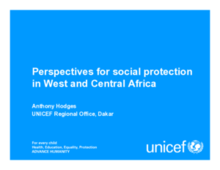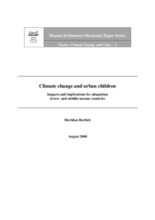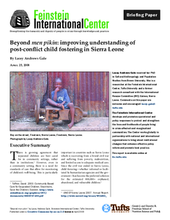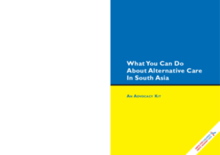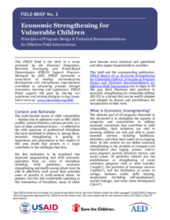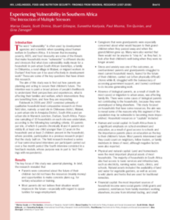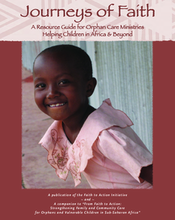Displaying 441 - 450 of 507
Assesses constraints and opportunities for social protection programming regionally with particular consideration for child sensitive social protection.
This paper discusses the probable impacts for children of different ages from the increasing risk of storms, flooding, landslides, heat waves, drought and water supply constraints that climate change is likely to bring to most urban centres in Africa, Asia and Latin America.
Examines the challenges posed in monitoring and ensuring child protection in informal and formal fostering in post-conflict areas.
On 13 February 2008 Prime Minister Kevin Rudd made a formal apology to Australia’s Indigenous peoples, particularly to the Stolen Generations whose lives had been blighted by past government policies of forced child removal and Indigenous assimilation.
Provides insight into the situation of children outside parental care in South Asia, gaps in legislation, capacity, and services, with reference to national and international legal instruments.
A brief illustration of ten economic strengthening tools that can be adapted to address child vulnerability due to HIV/AIDS, conflict, natural disaster, extreme poverty, or other contexts.
Research study aimed at understanding the meaning of vulnerability and it's impact on parent's future planning for children in the context of poverty in Malawi and South Africa
This review explores the short- and long-term implications of migration for families in the context of HIV and AIDS, focusing mainly on sub-Saharan Africa.
Examines the outcomes of family strengthening model in Uganda.
This resource is designed to be used as a guide for those in the Faith community working with orphaned children.

